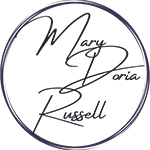Lots of readers are asking if I’ll be writing any episodes of the HBO series based on Doc. There’s a two-part answer to that question.
Part 1: Not a chance.
In Hollywood, it is customary to ignore the author of “source material” once the rights to it have been secured. Producers and writers see only a downside to any consultations or sharing of information with the author of a work they are adapting. They expect us to whine and complain and pout when they change our stories. They don’t want to listen to us moan, “But my character would never say that!” Honestly: who needs the grief?
I don’t expect to get so much as a phone call from anyone connected with the creative process involved with adapting Doc for a series on HBO.
Part 2: Just as well, because I am really, seriously, categorically not cut out to be a screenwriter.
Ten years ago, I had a lot of fun writing a screen adaptation of The Sparrow with Karen Hall. But if and when Scott Derrickson ever manages to get that screenplay produced, I’ve already told him that Karen should be the one who does the day-to-day, on-set changes and adjustments to the pages. As a veteran TV writer, she’s used to the snap decisions and instant turn-around times. She understands the give and take of the work, the short-hand phrases and jargon. I’m not willing or able to move to California to be available for that, and I don’t work well under pressure.
So, even if I were asked to help with the HBO series, I would probably have to say, “Thanks for asking, but no.” I have to let go of Doc and let other people do their jobs.
I’m not saying this is easy.
As Karen told me when she first proposed writing a screen adaptation of The Sparrow together, “Even if the movie sucks, more people will see it in its opening weekend than will ever read your book.” And she’s right. The movie often becomes the story. It absorbs the source material. Already, there are wildly wrong synopses of what’s supposedly in my book. I’ve been both praised and criticized for the reported decision “to feature the never-before-explored love triangle between Holliday, his prostitute wife Kate Elder, and best friend Wyatt Earp,” as though that’s what my book is about.
Frankly, it worries me that that Wyatt Earp is identified as Doc’s best friend because that might indicate that Morgan is going to be left out of the equation, when I think he was the glue that held all these relationships together. It also makes me nervous that they’re calling Kate Harony “Kate Elder,” because that might indicate that they’re not going to do anything with her real back-story.
At the same time, it’s important to remember that initial online report of the HBO deal may be every bit as inaccurate as the ones claiming to describe my story.
I’m also aware that Wyatt probably did know Kate before Doc did — both socially and in the biblical sense. I’ve made it plain in Doc that Kate never liked Wyatt, though I didn’t clutter up my story with a triangle. For a television series, however, there is indeed room to explore that corner of history as a through-line. I just hope that Doc never finds out.
Here’s what else I hope.
I hope that Dr. John Henry Holliday gets his season of happiness. I hope that he feels well during his summer in Dodge City, and is able to return to the profession that gives him so much satisfaction. I hope that he makes a few good friends who will stand by him when he needs help. And most of all, I hope that he gets to play the Emperor concerto on a well-tuned piano on a single transcendent night in the immense Kansas darkness.
